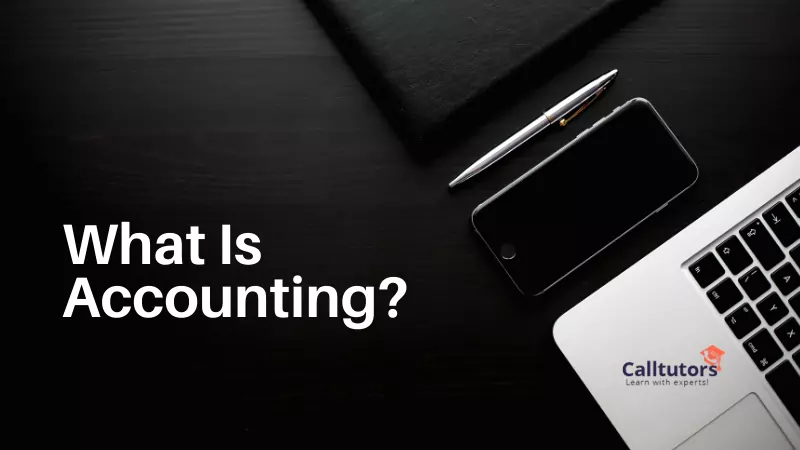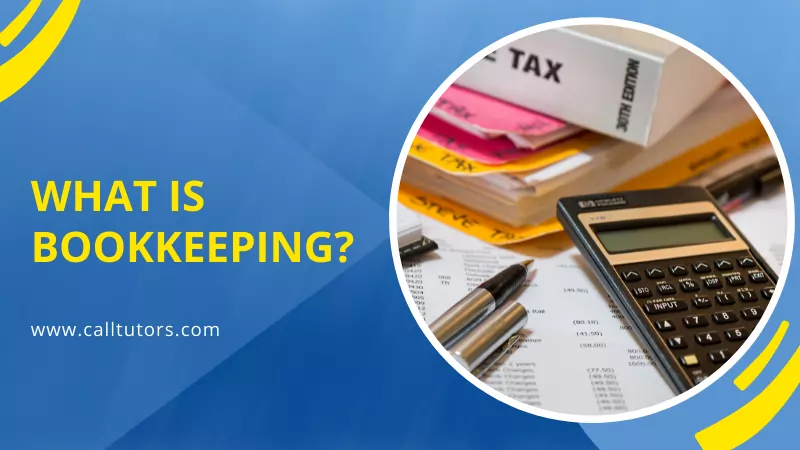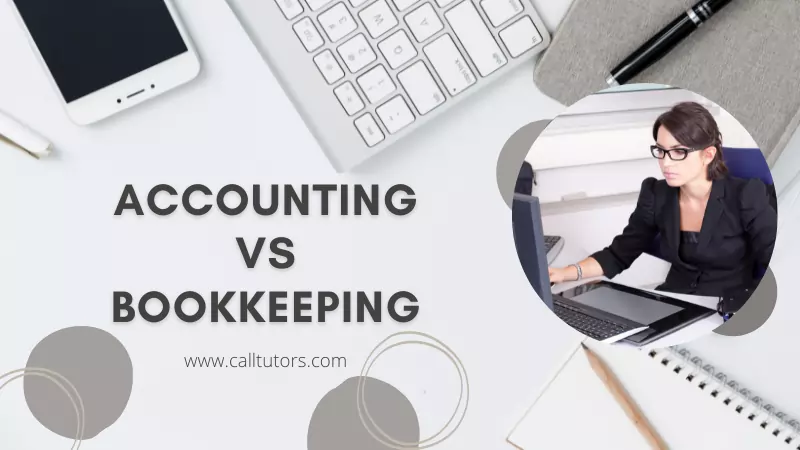Most people are often confused about the differences between Accounting and Bookkeeping. As a result, they always struggle in describing the actual differences between these closely related terms—That’s why they usually search for Accounting vs Bookkeeping. Accountants and Bookkeepers have many common goals, both work for the business in various financial stages. Bookkeeping is more concerned with financial transactions. Whereas, Accounting deals with business insights on the basis of bookkeeping information. Therefore, Accounting is subjective, but bookkeeping is transactional. This blog will give information about how Accounting and Bookkeeping are different from one another. Moreover, many accounting students face difficulty in Accounting assignments. Therefore, we provide Accounting Assignment Help Online to solve their problems.
What is Accounting?
Table of Contents
Accounting is the process of recording, organizing, measuring, and understanding a business’s financial transactions. Business organizations use accounting to determine how well their company is performing, and they show this information to stakeholders.

Accounting provides information on whether some business is in profit or loss, the value of the company’s assets, etc. Accounting is also useful in making various short-term and long-term decisions. The main purpose of accounting is to present a clear picture of the financial statements of a business to the people. However, the various tasks of an accountant are as follows-
- Preparation of financial statements,
- Analyzation of journals and ledger entries,
- Providing tax advice, and
- Providing financial advice.
The Function of Accounting
It is a high-level process. The financial statements are compiled by the bookkeeper or an owner of the business, it uses it and by using that data or information it produces the financial models. From bookkeeping, the accounting process is more subjective.
Accounting is comprised of:
- Creating adjustment entries (recording the expenses which occurred but have not yet been documented in the bookkeeping process)
- Creating financial statements for a business
- Analyzing operational costs
- Completing the income tax returns
- Aiding the business owner to understand the impact of the financial decisions
Accounting generates reports that combine essential financial information. As a result, the business has a better knowledge of its true profitability and cash flow. Accounting transforms information from the ledger into financial statements that indicate the company’s overall picture and trajectory. To take help from accountants in financial forecasting, strategic tax planning, and tax filing, the owners of the business seek accountants.
What is Bookkeeping?
Bookkeeping deals with recording and organizing financial transactions during the business course. It is an essential part of accounting that is concerned with recording and classification of daily financial transactions. Various transactions such as payment of taxes earned revenue, loan investments are recorded with bookkeeping. It is the basis of accounting.

It focuses on the maintenance of accurate records of every financial transaction of business. Business organizations use this information when making major decisions of investments. Moreover, the accuracy of the accounting process depends on the way in which bookkeeping is managed. Therefore, it is the bookkeeper’s responsibility to update financial transactions with a high level of accuracy.
The Function of Bookkeeping
It is the activity or process of consistently recording daily transactions and is an important part of running a profitable business.
Bookkeeping is comprised of:
- Keeping records of financial transactions
- Debits and credits are recorded
- Invoice creation
- Maintaining subsidiaries, historical accounts, and general ledgers and also balancing them
- Completing payroll
The component of bookkeeping which is the crucial one is managing a general ledger. It is the basic document. And in general ledger bookkeeper records the amount received from the sales and expenses. This is known as posting, and the more frequently the ledger is posted, the more sales are performed. A computer spreadsheet, specialised software, or lined paper sheet, in which a ledger can be made.
By the size of the company and based on the daily, weekly and monthly transactions, the complexity of a bookkeeping system is often determined.
In the ledger, the sales and purchases of the company must be documented, and also some items require supporting documentation.
What is the difference between the role of a Bookkeeper and an Accountant?
Both these professions seem very similar to an inexpert. Therefore, they generally search about Bookkeeper vs Accountant job roles. Sometimes both of these do the same work. However, a bookkeeper’s primary task is to record and organize the transactions, whereas accountants provide analysis, consultation, and advice on tax-related matters.
Accounting vs Bookkeeping: The Main Differences
Following are the main point to point differences between Accounting vs Bookkeeping
| Accounting | Bookkeeping |
| Accounting is the process of interpreting, summarising, and communicating the financial data of a Business organization. | Bookkeeping deals with recording and organizing financial transactions during the business course. |
| Data from Accounting is utilized for making major business decisions | Data from Bookkeeping is insufficient for making business decisions. |
| Accounting creates insights for a company by analyzing the data. | Bookkeeping does not require any analysis. |
| A person who handles accounting is known as an Accountant. | A person who deals with bookkeeping is known as a Bookkeeper. |
| Accounting helps to view a clear picture of the financial position of a business. | Bookkeeping does not help in showing the position of a business |
| It requires very high-level learning for understanding and analyzing the concepts of Business. | No high-level learning is needed. |
| Financial statements are important for Accounting | Financial statements are not made in Bookkeeping. |

What are the Similarities between Accounting and Bookkeeping?
Accounting and Bookkeeping are closely related to each other. Both these terms appear to be a similar profession to a newbie. Both Accountant and Bookkeeper handle the financial data. And both of them work for the common goal of increasing the financial health of a business organization. In small businesses, their job roles sometimes overlap because of the bookkeeping software, which can collect financial statements. Moreover, both these require basic accounting knowledge for entering the profession. Therefore, an untrained eye thinks they have the same profession. And, they often struggle to describe Bookkeeping vs Accounting.
Educational Qualifications required for Accountant vs Bookkeeper
Usually, one needs a bachelor’s degree in accounting to get the title of an Accountant. If someone doesn’t have a bachelor’s degree in accounting, he must have a finance degree for getting this job role. Moreover, Accountants can acquire some additional certifications with their education and experience in accounting. For instance, an accountant can become a Certified Public Accountant with the help of his knowledge, experience, and education. CPA is a financial advisor who helps various businesses to plan and achieve their goals. Accountants need to qualify for the Uniform Certified Public Accountant test to become a CPA.
Bookkeepers generally do not require to possess any minimal education or certification. However, they need to be knowledgeable, followers of accuracy and should know the important financial topics. A Bookkeeper generally works under the guidance of an accountant. However, in small business organizations, the work of a Bookkeeper is overseen by the business owner.
Bookkeeper or accountant? Which do you need?
It is very important to understand which do you need, a bookkeeper or an accountant. And this decision is one of those which depends on the industry and the required level of expertise.
For daily transactions, a bookkeeper is the best choice and it is less expensive to hire also. But, you may need an accountant as well, if you need the insight and the advice on the basis of which you can operate your business at scale. Means advice should be for how to operate your business better.
While making your decision, there are some questions that are industry-related questions that should be considered:
- How large is your inventory?
- How many employees do you have?
- What industry are you in?
Accountants are needed to those industries who work with the financial systems which are complex one’s and that have high-volume transactions such as colleges, government agencies, hospitals, etc.
When filtering applications, in mind keep this that you don’t judge an applicant on the education basis, alone.
When you are examining the candidate, consider these questions:
- What is their level of knowledge and experience? Certifications?
- What services does the person provide?
- What services has the individual already provided?
Conclusion
This blog has provided information about Accounting vs Bookkeeping. Moreover, the information about the similarities, job role, and required Accounting and Bookkeeping qualifications are also mentioned. Accounting and Bookkeeping are entirely different professions. However, they have many similarities. Many people think that both of these are the same profession. Hopefully, this blog clears the vision of those people about Accounting vs Bookkeeping. Moreover, if you need any help with Accounting Assignments, you can contact our experts and avail do my accounting assignment at a reasonable price.
Accounting vs Bookkeeping FAQ
What are basics of accounting?
Revenues, expenses, assets, liabilities, income statement, balance sheet, and statement of cash flows are some of the basic accounting words you’ll study. As we demonstrate how to record transactions, you will get familiar with accounting debits and credits.
Do accountants need to be good math?
Accountants do not need to be mathematical geniuses. Of course, you’ll be expected to have a basic understanding of math, as with most employment. It also helps if you are interested in mathematics. To be a successful accountant, though, you do not need to be able to answer complex math problems in your head.



